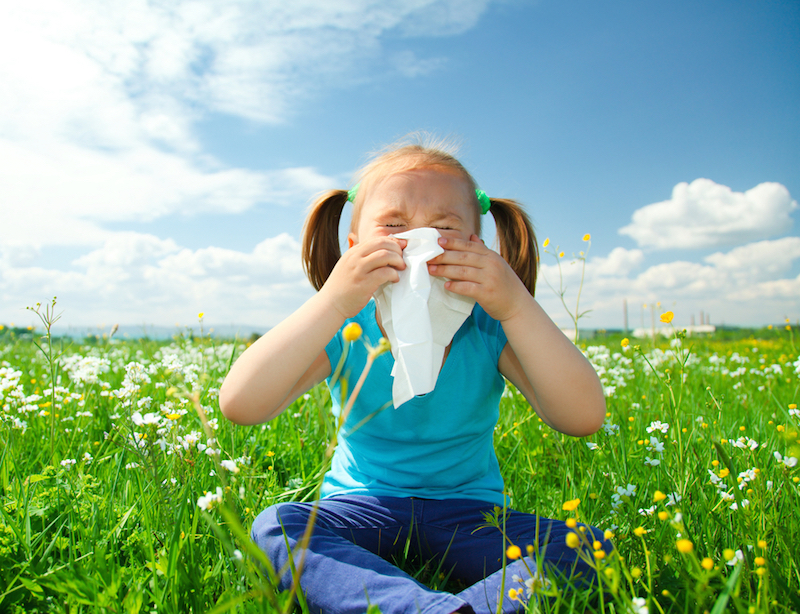Season of Birth Genetically Linked to Allergy Risk

Get the world’s most fascinating discoveries delivered straight to your inbox.
You are now subscribed
Your newsletter sign-up was successful
Want to add more newsletters?

Delivered Daily
Daily Newsletter
Sign up for the latest discoveries, groundbreaking research and fascinating breakthroughs that impact you and the wider world direct to your inbox.

Once a week
Life's Little Mysteries
Feed your curiosity with an exclusive mystery every week, solved with science and delivered direct to your inbox before it's seen anywhere else.

Once a week
How It Works
Sign up to our free science & technology newsletter for your weekly fix of fascinating articles, quick quizzes, amazing images, and more

Delivered daily
Space.com Newsletter
Breaking space news, the latest updates on rocket launches, skywatching events and more!

Once a month
Watch This Space
Sign up to our monthly entertainment newsletter to keep up with all our coverage of the latest sci-fi and space movies, tv shows, games and books.

Once a week
Night Sky This Week
Discover this week's must-see night sky events, moon phases, and stunning astrophotos. Sign up for our skywatching newsletter and explore the universe with us!
Join the club
Get full access to premium articles, exclusive features and a growing list of member rewards.
People born in the fall and winter seem to have an increased risk of certain allergic diseases such as asthma, studies have shown, and now scientists may have found one reason why.
In a new study of people in England, researchers found that certain markers on the DNA are linked to the seasons in which people are born, and these markers also seem to mediate people's risk of allergic diseases.
The results suggest that some environmental factor that varies from one season to another may also drive the changes in these markers, the researchers said.
"The clinical implications are that if we understood what the environmental factor was that was varying by season, then it potentially could be modifiable to reduce allergy risk in children," said study co-author John Holloway, a professor of allergy and respiratory genetics at the University of Southampton in the United Kingdom.
The researchers said they don't yet know what this factor is. But if, for example, the factor had something to do with sunlight exposure altering pregnant women's vitamin D levels, then perhaps providing nutritional supplements to these women could help lower the risk of allergies in their children, Holloway told Live Science. [Got Allergies? Avoid These 7 Mistakes]
However, the researchers said they are not advising that women actually alter the timing of their pregnancies to try to modify this risk.
In the study, the researchers looked at 367 people who were born on the Isle of Wight, an island in the English Channel, between 1989 and 1990. The researchers checked if the people had hay fever, asthma or eczema when they were 1, 4, 10 and 18 years old, and also looked at the subjects' genetic data, to estimate their genetic susceptibility to developing these diseases.
Get the world’s most fascinating discoveries delivered straight to your inbox.
Results showed that certain epigenetic markers on the DNA — which can influence how genes are expressed — were linked to the seasons in which the people were born, as well their risk of allergic diseases. For example, people who were born in the fall were more likely to have certain markers, and also were more likely to be diagnosed with eczema than were people born in the spring, the researchers found. [9 Weirdest Allergies]
"It might sound like a horoscope by the seasons, but now we have scientific evidence for how that horoscope could work," study co-author Gabrielle Lockett, a postdoctoral researcher at the University of Southampton, said in a statement. "Because season of birth influences so many things, the epigenetic [markers] discovered in this study could also potentially be the mechanism for other seasonally influenced diseases and traits, too, not just allergy [risk]."
Previous research has shown, for example, that season of birth is linked to a person's height and his or her risk of schizophrenia, the researchers said.
The new study was published March 21 in the journal Allergy.
Follow Agata Blaszczak-Boxe on Twitter. Follow Live Science @livescience, Facebook & Google+. Originally published on Live Science.
 Live Science Plus
Live Science Plus










